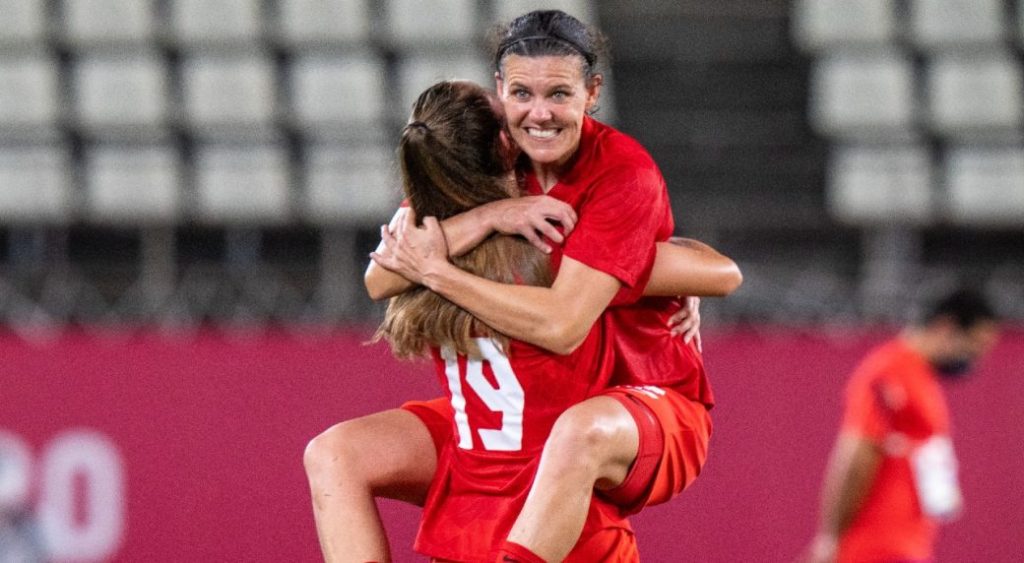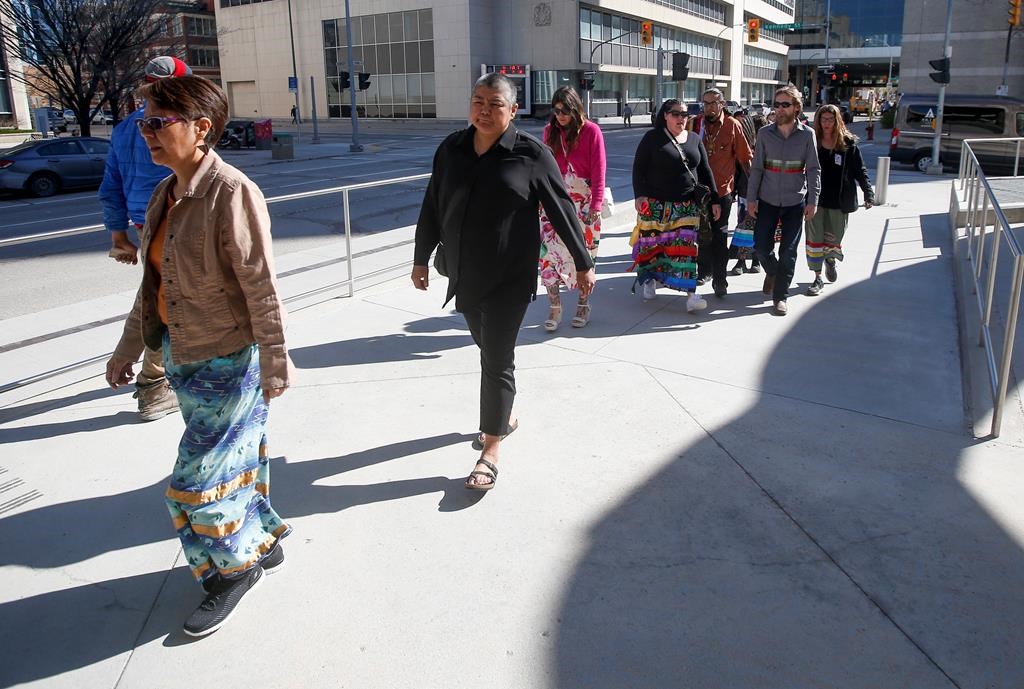Women’s World Cup preview: foolish to count out Canada

Posted July 19, 2023 7:24 pm.
The 2023 FIFA Women’s World Cup that kicks off this week is the most anticipated in history, and will be the most-watched, a sign of just how far the tournament has come since its very humble beginnings in 1991.
Just 12 nations competed in China that year and there was barely any media coverage of the inaugural competition, which didn’t even have the full weight of the “FIFA World Cup” brand behind it — it was officially known as “FIFA Women’s World Championship.” Fans in China didn’t seem particularly interested, either, as the 26-match tournament drew barely more than half a million spectators.
Fast-forward 32 years and one can immediately see the exponential growth the tournament has experienced. A record 32 nations make up the field for this year’s competition, which will be co-hosted (another first) by Australia and New Zealand, fuelled by a huge surge in global interest in women’s soccer. Players such as Marta (Brazil), Alexia Putellas (Spain), Beth Mead (England) and Canadian captain Christine Sinclair have become household names in their respective countries.
It's almost that time #FIFAWWC #WeCAN pic.twitter.com/MHXkrDOokh
— CANWNT (@CANWNT) July 20, 2023
FIFA has already sold more than one million tickets for this summer’s World Cup, which means it is on track to become the highest-attended event ever, surpassing the 2015 tournament’s record set in Canada (1.35 million). All of the games will be televised and streamed live around the world, such is the demand to see this tournament.
As the reigning Olympic champions, the Canadian team enters this World Cup as one of the favourites. Ranked No. 7 in the world, Canada can still rely on a 40-year-old Sinclair (competing in her sixth World Cup) for inspiration, versatile fullback Ashley Lawrence, a promising central midfield duo in Jessie Fleming and Julia Grosso, and a sturdy back line anchored by Kadeisha Buchanan and Vanessa Gilles, all of whom were the backbone of the Olympic gold-medal winning team.
Goalkeeper Stephanie Labbé, nicknamed the “Minister of Defence” on account of her stellar performances in Tokyo, has retired. But her long-time understudy, Kailen Sheridan, was named NWSL Goalkeeper of the Year in 2022 and is considered among the best shot-stoppers in the women’s game. Coach Bev Priestman is universally respected by her players and within Canadian soccer quarters for leading the women’s side to a gold medal in Tokyo, making good on her promise of “changing the colour of the medal” when she was first appointed in 2020.
Yet, despite those considerable assets, there remain doubts about this Canadian team going into the World Cup.
For starters, history is not on their side. Canada won Olympic bronze in 2012 and 2016 but failed to make a lasting impression at the subsequent Word Cups — an underwhelming quarter-final exit on home soil in 2015 and a Round-of-16 departure four years ago in France. Canada’s best World Cup showing came in 2003, when it reached the semifinals. But that was a much different tournament — only 16 teams participated, and the global game was dominated by a handful of nations, unlike today where there is far more parity. Since that run to the semifinals, Canada has twice bowed out in the group stage — including in 2011, when it finished dead last in the tournament — and has won just a single knockout match.
The team’s scoring prowess is also an area of concern. Canada’s gold-medal run in Tokyo was largely achieved on the strength of its defence. Canada scored just two goals in its three knockout games (both from the penalty spot, rather than open play), and twice required a shootout to vanquish its opponents. Through its first five matches of 2023, Canada has been shut out three times and has just three goals to its credit. Sinclair isn’t the same scoring threat she used to be, and nobody has stepped up to become the team’s definitive, go-to striker. Once considered (unfairly) as Sinclair’s heir apparent, Jordyn Huitema has just one goal in her previous 13 appearances. Adriana Leon is coming off an unsuccessful club season at Manchester United.
Veteran Janine Beckie, fourth on Canada’s all-time scoring list with 36 goals, is ruled out of the World Cup after tearing her ACL in March. Fellow forwards Nichelle Prince and Deanne Rose only recently returned from lengthy injury layovers (both torn Achilles). As Sinclair has grown older and become less prolific, the lingering question surrounding this Canadian team has been from where will the goals come? It remains unanswered going into this World Cup.
Matters off the pitch also threaten to derail Canada. The women’s national team has been embroiled in a long, bitter and public dispute with Canada Soccer over pay equity. The Olympic champions enter this World Cup without a new Collective Bargaining Agreement in place.
Sinclair and teammates Beckie, Sophie Schmidt and Quinn brought their case before members of the parliamentary heritage committee in Ottawa in March. Sinclair took Canada Soccer to task for fostering a “culture of secrecy and obstruction” in its labour negotiations with the women’s team over the years.
“As the popularity, interest and growth of the women’s game has swept the globe, our most painstaking battle has been with our own federation and trying to obtain fair and equitable treatment in the way we are supported and the way we are paid,” Sinclair testified.
A month prior, the Canadian players went on strike over cutbacks in funding to their program and inequality in spending compared to the men’s team, which also had its budget slashed for 2023. In launching the job action, the players stated they wanted the same level of funding and treatment the men’s team received last year in preparation for the World Cup in Qatar.
The strike lasted one day, and players returned to training and committed to playing at the SheBelieves Cup in the U.S. after Canada Soccer threatened legal action against them. Canada underperformed and finished in last place at the four-nations tournament, as the labour situation proved to be too much of a distraction.
The fear amongst Canadian supporters is that that ongoing dispute with Canada Soccer could adversely affect the team’s performances at the World Cup, much like it did earlier this year.
“That is a concern, but I don’t think that is the main concern. I think the main concern for us is on the field,” Buchanan said. “We do have people in place to handle that on the side while we work diligently on the field. So, our focus is on the field. We’ll deal with things as they come and go…
“Our focus is solely on the World Cup at the moment.”
At the end of the day — and beginning of the tournament — there remains a resilience and a dogged sense of self-belief about this Canadian team that has served it well in the past, most notably in Tokyo where most pundits dismissed their chances of even reaching the medal podium. Sinclair and her cohorts proved everybody spectacularly wrong then, and they’re eager to do the same this summer. It would be foolish to write them off.








